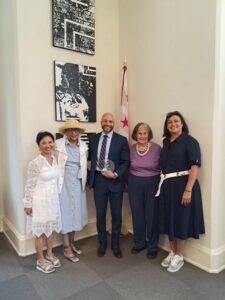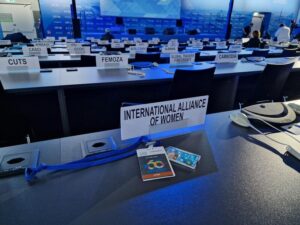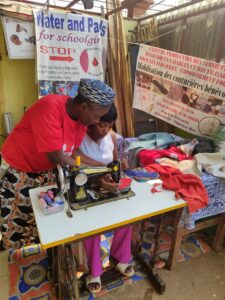Sofia Bekatorou driving a new #MeToo movement in Greece and challenging deeply ingrained social norms in this country
I am very happy to announce that a new day has come for Greece and women’s human rights. We now have in Greece the #MeToo Movement.
A Greek Olympic sailing champion, Sofia Bekatorou, has accused a top sporting official in Greece of sexual abuse, the country’s first high-profile accusation of sexual assault and abuse of power since the #MeToo movement swept the world in recent years, bringing down powerful figures in the media, politics and sports worlds.
Claims by Sofia Bekatorou that she was sexually assaulted by the official 23 years ago, when she was 21, have prompted a wave of support and an unusually open debate in my country, where studies suggest sexual harassment is prevalent.
The first such study in Greece was undertaken by myself in Athens during 1988-1991 with a small group of people from the Greek League for Women Rights, where I was member of the Board.
The elaboration of the questionnaire was done with the help of Professor Alice Marangopoulos who was President of the League. The questionnaire was distributed in many working places in the private and public sphere. Trade unions that were active in these workplaces helped with its distribution.
The answers to the questionnaire were very interesting. We worked on them together with Professor Marangopoulos. We found for example that the division of the sexes within working places had a decisive impact on the frequency of such behaviors. Where the division of the two sexes in the workplace was equal from the point of view of numbers or where women were more numerous than men, the percent of women sexually harassed was lower than in workplaces where men were dominant from the point of view of numbers.
The results of the research were published in a book edited by myself, in the name of the Greek League for Women’s Rights, with the title “Work, trade unionism and gender equality”, Odysseas Publications, July 1988.
Sofia Bekatorou has participated in over hundreds of main class events including the 2004 summer Olympics sailing competition where she won the gold medal and the bronze four years later in Beijing. She said a senior official of the country’s sailing Federation sexually assaulted her in a hotel room in 1998.
Ms. Bekatorou on Wednesday sent a letter to World Sailing, the global governing body, signed by several Olympic sailing athletes and coaches, calling out a “wretched situation” in the Greek Federation and asking for global officials to appoint temporary management to schedule elections for a new board.
Ms. Bekatorou said fears of jeopardizing her Olympic dream had prevented her from speaking out about her abuse at the time.
I hope this helps other women to speak out if they have experienced sexual abuse, so that our society can be healthier and less afraid said the 43 years old Bekatorou. Several other women from the field of sports and beyond have now also spoken out about alleged harassment and the Greek supreme court has urged prosecutors to make responding to such claims a priority.
What is fantastic is that Sofia has been very strongly supported by many people in Greece, by political parties, journalists, students, the President of the Republic, Ministers. Everybody has congratulated her for her courage so finally something is changing in my country and I am extremely happy.
Politicians across the spectrum have acknowledged the significance of the moment.
In a rare display of unity, the Prime Minister, Kyriakos Mitsotakis and his leftist predecessor, Alexis Tsipras, both voiced support for victims whose determination to speak out has elicited echoes of the #MeToo movement.


